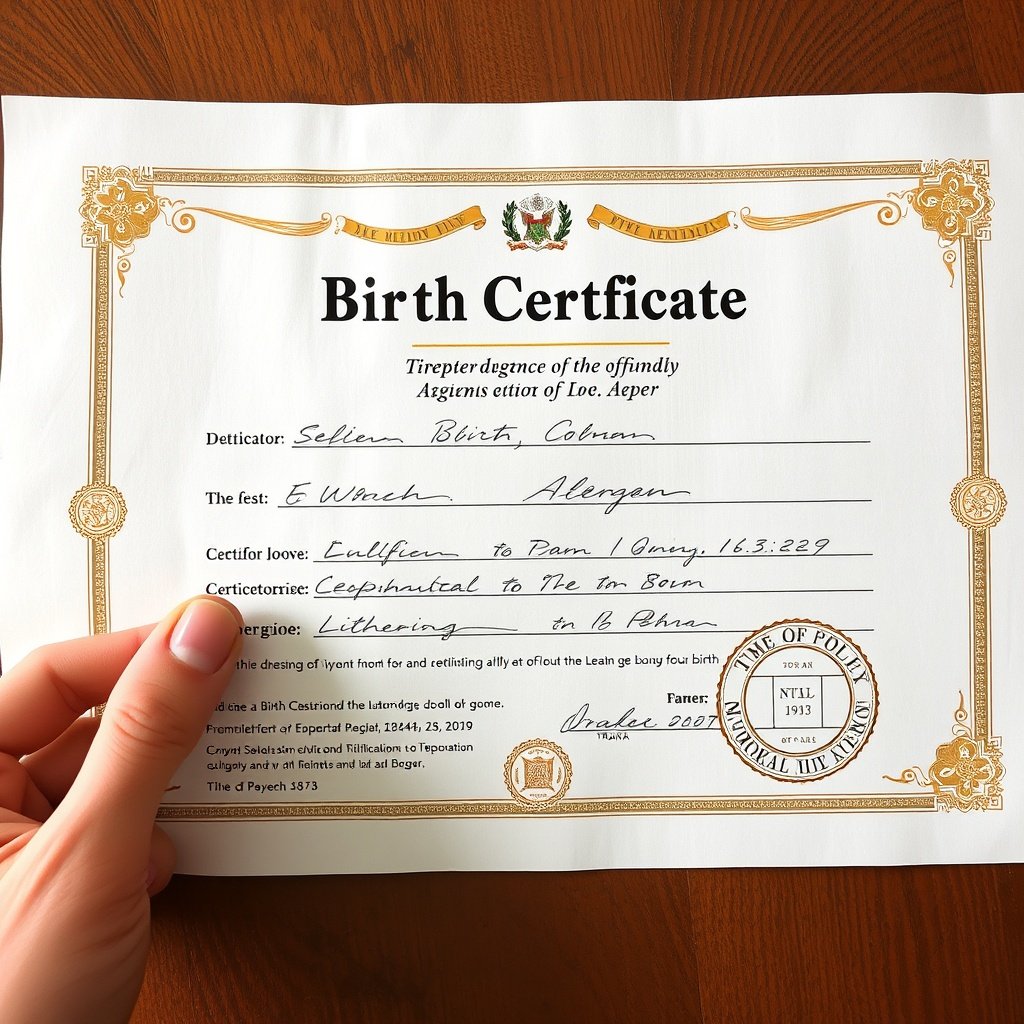** Birth Certificate **
A birth certificate serves as an official document that records the birth of a child. It includes essential details such as the child’s name, date of birth, place of birth, and the names of the parents. This document is critical not only for personal identification but also for legal purposes, such as obtaining a passport, enrolling in school, and applying for government benefits. Understanding the significance of birth certificates is vital for anyone researching family history or genealogy.
In genealogy research, birth certificates can provide a wealth of information that helps to build family trees. For instance, they often include the names of the child’s grandparents, which can be a key piece of information when tracing lineage. Additionally, the place of birth can indicate regional migration patterns and may lead researchers to discover more about their family’s history. Understanding how to interpret the information found on a birth certificate can greatly enhance one’s research efforts.
When searching for birth certificates, it’s beneficial to utilize various online databases. Many local and state archives have digitized their records, making them accessible to the public. Additionally, ancestry websites often have collections of birth records that can be searched by name, date, and location. Focusing on specific timelines, such as the period just before or after significant historical events, can yield more accurate results and help streamline the research process.
If you find yourself struggling to locate a birth certificate, it may be advantageous to reach out for professional help. Many genealogists specialize in retrieving historical records and can assist in navigating complex databases or court systems. They often have access to resources that the average researcher may not, which can save time and increase the chances of finding the necessary documentation. Additionally, professional researchers can offer insights into the historical context surrounding the records, enhancing your understanding of your family’s background.
Moreover, birth certificates can serve as a conversation starter among family members. Sharing the stories behind the certificates can lead to discussions about family traditions, migration stories, and personal anecdotes that are precious to family history. Engaging with relatives about these documents can uncover additional information not present in the records, enriching the overall understanding of your ancestry.
For those interested in a deeper understanding of genealogy, consider checking resources that provide comprehensive guides on obtaining vital records. Websites such as National Archives outline the steps necessary to acquire birth certificates across different states, including applicable fees and processing times. This knowledge is essential for anyone looking to conduct thorough genealogical research.
The birth certificate is one of the vital records in genealogy research.
Just like the death or marriage records.
You can save a lot of money by searching existing databases.
Just focus on timelines or areas of research.
If you are stuck, ask professional help to trace such documents.
Read more
Additionally, understanding the different types of birth certificates can be important. For instance, a long-form birth certificate provides detailed information, including the names of parents and witnesses, while a short-form birth certificate is often used for identification purposes and may only include the child’s name and date of birth. Knowing which type you need can facilitate your research and provide specific information relevant to your inquiry.
Read more
How and where to obtain a copy?

Shop tip
Thank you for shares and comments! 😀🎉
Images Picsart and MIB
Lulu | Content | Glossary | All References




